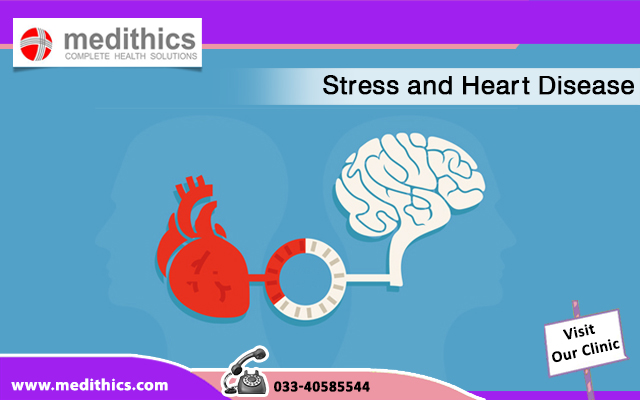In our everyday life, we cannot avoid stress. It can lead to a number of complications including physical, emotional and psychological problems. Some physical problems are heart disease, irregular heartbeats, chest pain and high blood pressure. Heart disease can happen due to stress itself or other risk factors that can happen due to stress. You may eat more, exercise less and can develop smoking habits due to stress. These often cause heart disease. Your body gets exposed to increased levels of adrenaline, cortisol and other stress hormones when there is chronic stress. This is not something healthy for your body as per the opinion of the best cardiologist in Kolkata. The risk of heart attack increases as stress can change the way your blood clots.
Causes of Stress
A physical or emotional change may often cause stress. ‘Stressors’ are the factors that make you feel stressed. Any major changes in your lifestyle, minor hassles or a combination of these two factors fall under ‘stressors’. A few causes of stress in one’s life are as follows:
- Any incident of a friend or loved one’s death
- Either personal illness or illness of a family member of a friend
- Any problem in a personal relationship
- The extra pressure of work
- Beginning a new job
- Pregnancy
- Unemployment
- Retirement
- Hassles in daily life
- Financial worries
Warning Signs of Stress
Your body normally gives some warning signals when you go through long periods of stress. According to the heart specialists in Kolkata, you should not ignore these physical, emotional, cognitive and behavioural warning signs as ignoring them will lead to more stress buildup. This will eventually have an adverse effect on your heart.
Managing stress
If you want to avoid heart disease due to stress, you must know how to manage stress. It is not much difficult if you follow the steps mentioned below.
-
Be sensible while you eat and drink. You may think that abusing alcohol and food will help you to reduce stress. This is a wrong thought as it actually increases your stress.
-
Assert yourself. Meeting the expectations or demands of other people is not always necessary. Learn to say ‘no’. You can remain true to your rights and beliefs while respecting those of others if you remain assertive.
-
Avoid smoking. Nicotine brings on more stress symptoms by acting as a stimulant. This is in addition to the usual health risks of cigarettes.
-
Do regular exercise. Set some goals regarding your exercise plan. It has been found that your body releases endorphins if you do aerobic exercise. You feel better and have a positive attitude as a result of this.
-
Make time for relaxation. You should learn how to relax if you want to manage your stress. Being relaxed will lower your stress level, which is beneficial for your heart.
-
Set realistic goals and expectations. You cannot get 100% success in everything at once. If you realize this fact, it will be beneficial for you.





